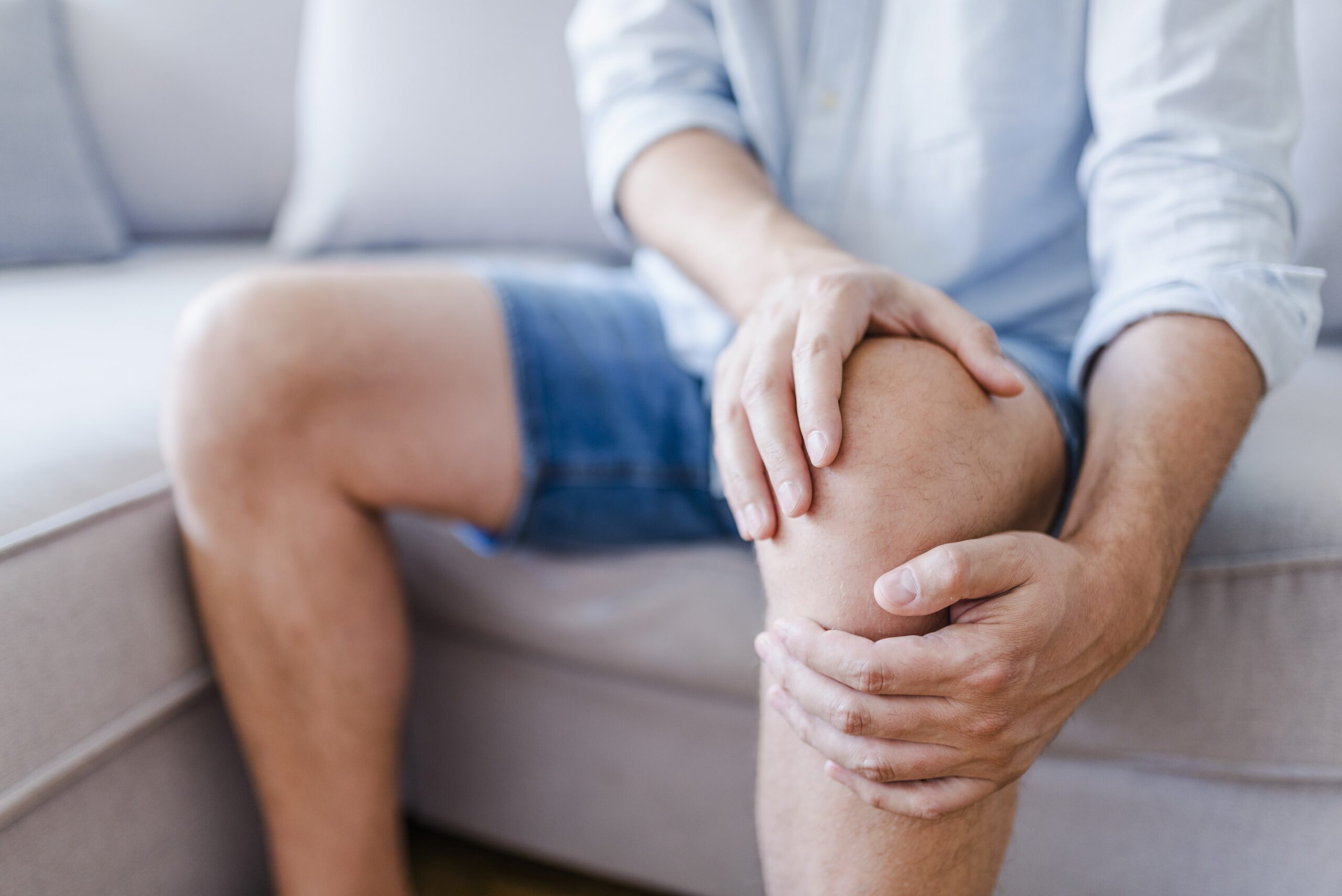Schedule An Appointment With Us
Are Your Symptoms Affecting Your Quality Of Life?
Consult our MOH-accredited ACL specialist for a comprehensive diagnosis of your condition & a personalised treatment plan.
The anterior cruciate ligament (ACL) is a critical ligament located within the knee joint, integral to maintaining stability. This ligament connects the femur (thigh bone) to the tibia (shin bone) and is key in coordinating smooth, controlled movements of the knee, and by extension, the entire leg.
MBBS
MRCSEd
MMED (Ortho)
FRCSEd

ACL injuries are a common occurrence among the athletic population in Singapore, particularly in sports involving sudden changes in direction, jumping, and rapid deceleration. Though comprehensive statistics on the prevalence may fluctuate annually, these injuries are recognized as a concern for both professional and amateur athletes.
Surgery for ACL reconstruction is indicated when there is a complete tear of the ligament or when the injury leads to knee instability that affects the patient’s quality of life or hinders performance in sports or other activities.
ACL surgery is recommended when conservative treatments such as physiotherapy and bracing have not improved knee stability. Furthermore, individuals who have a high activity level or are involved in pivoting sports are potential candidates for this surgery to prevent secondary knee damage and to facilitate a return to their previous levels of activity.
During the initial consultation, patients can anticipate a thorough medical history evaluation and a physical examination focusing on the knee. The orthopaedic surgeon will assess the extent of the injury, range of motion, and any associated discomfort. This visit serves to discuss the surgical plan, potential risks, and expected outcomes.
Diagnosis of an ACL injury typically involves a combination of clinical assessment and imaging studies. The Lachman test, a physical examination manoeuvre, is commonly performed to evaluate ACL integrity. Imaging modalities include:
Patients scheduled for ACL surgery should adhere to specific guidelines to ensure optimal surgical outcomes:
ACL reconstruction surgery is tailored to the individual’s needs, activity level, and specific injury characteristics. The goal is to restore knee stability and function. The surgical options for ACL reconstruction generally include:
The surgeon determines the most appropriate graft based on the patient’s age, activity level, and graft availability. Each graft type has its advantages and potential drawbacks, influencing the decision-making process.
The procedure typically involves arthroscopy, where small incisions are made, and the surgery is performed with the aid of a camera and specialised instruments. This minimally invasive approach reduces recovery time and postoperative pain.
Schedule An Appointment With Us
Consult our MOH-accredited ACL specialist for a comprehensive diagnosis of your condition & a personalised treatment plan.
ACL reconstruction is a surgical procedure that replaces the damaged ACL with a graft to restore knee stability and function.
The procedure typically follows these steps:
Anaesthesia |
Administered to ensure patient comfort during the surgery. Options include general anaesthesia, regional anaesthesia, or a combination. |
Arthroscopic Evaluation |
An arthroscope, a small camera, is inserted through a small incision to provide a clear view of the knee joint. |
Graft Harvesting |
If an autograft is used, a tendon is harvested from the patient’s body, while allografts are prepared for implantation. |
Tunnel Preparation |
Drilling of bone tunnels in the tibia and femur where the graft will be placed to replicate the ACL’s natural course. |
Graft Placement |
The graft is threaded into place through the prepared tunnels. |
Graft Fixation |
The graft is secured with screws or other fixation devices to hold it within the bone tunnels. |
Closure |
The incisions are sutured, and a dressing is applied. |
Immediate Postoperative Care |
Monitoring in a recovery area as anaesthesia wears off, followed by initial postoperative instructions. |
Duration |
The procedure duration varies but typically takes one to two hours. The patient usually returns home on the same day. |
Post-surgical care is critical for optimal recovery from ACL reconstruction. This phase is characterised by several components:
Recovery timelines vary but typically include several months of physical therapy. Return to sport or full activity is a gradual process, with milestones set by the orthopaedic surgeon and physical therapist based on individual progress.
ACL surgery, like all surgical procedures, carries inherent risks which include:
There are several symptoms that may indicate complications:
Schedule An Appointment With Us
Consult our MOH-accredited ACL specialist for a comprehensive diagnosis of your condition & a personalised treatment plan.
ACL reconstruction surgery in Singapore has a high success rate, with outcomes generally favourable. Success is measured by the restoration of knee stability, return to pre-injury levels of activity, and patient satisfaction. Long-term outcomes also include the prevention of secondary knee injuries, such as meniscal tears or early-onset osteoarthritis.

MBBS
MRCSEd
MMED (Ortho)
FRCSEd
With over 18 years of experience, Dr Poh Seng Yew is an orthopaedic surgeon specialising in hip, knee, shoulder and elbow surgery, sports medicine, and trauma surgery.




Weekdays: 9.00am – 5.00pm
Saturdays: 9.00am – 1.00pm
Sundays and Public Holidays: Closed
Your symptoms shouldn’t affect your quality of life or disrupt daily activities. Reach out to our friendly clinic staff today & schedule a consultation.
Recovery time varies but typically spans 6 to 9 months until full activity can be resumed, with ongoing improvements up to a year.
Surgery is generally recommended based on activity level and knee stability rather than age. Suitability is assessed on a case-by-case basis.
Revision surgery is possible and is determined by individual patient circumstances and overall knee health.
Coverage depends on the individual’s health insurance policy. Patients should verify with their insurance provider.
Measures include adherence to international surgical standards, mandatory accreditation for facilities, and continuous surgeon training.